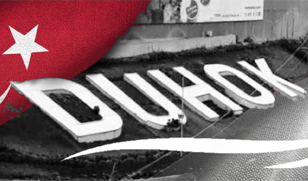The Turkish aggression on Iraq and the official and popular position
Assistant Professor Dr. Mustafa Ibrahim Salman Al-Shammari Center for Strategic and International Studies / University of Baghdad
First: The position of the Turkish forces and their presence in Iraq:
The issue of the presence of Turkish forces in Iraq is a reality, and according to documented information issued by the Communication Department of the Turkish Presidency, and supported by the Kurdistan Regional Government of Iraq, these forces are stationed within the limits of (37) bases and fulcrums, and are deployed in the border areas of Iraqi Kurdistan, aswell as in Erbil, Dohuk, Zakho and Soran until the year 2020, and this presence comes to fight the PKK, knowing that Turkey sought in order to secure its military forces to coordinate with the Iranian and Iraqi border forces and to avoid any clash With the forces of these two countries.
Although the military intervention in northern Iraq dates back to the nineties of the last century, it has gained an important shift since 2018, especially as it was associated with the expansion of Turkey's military operations in Syria and Libya, and on the other hand its quest to secure Iraqi oil supplies to Turkey, and protect the oil pipeline extending from Kirkuk to the port of Ceyhan .
In addition, the Russian-Ukrainian war, and the resulting Western sanctions against Russia by preventing the import of Russian gas, have increased the importance of the Kurdistan region of Iraq in the Turkish strategic perception, which may make it a possible alternative to Russian gas supplies to Turkey or even to Europe at a later time, and thus Turkey seeks to invest in geographical proximity by making its territory a corridor for the transport of Iraqi gas to Europe.Especially since the border separating the province of Dohuk and Turkey is (35) km, noting that there is a cooperation agreement in the field of energy signed between Turkey and the Kurdistan Regional Government of Iraq in 2013, through which Turkey was able to complete the pipeline linking its border with northern Iraq with a channel transporting Azerbaijani gas to Europe. Although the Iraqi Federal Supreme Court repealed the oil and gas law in Iraqi Kurdistan on February 15, 2022. However, the reality of the situation confirms that these projects continue to be completed and developed.
It is worth noting that although the Iraqi government agrees with Turkey to confront the PKK, this has not prevented the Iraqi government from issuing statements from time to time condemning the Turkish military intervention and its operations against Iraqi cities in the north.
It should also be noted that Turkey is taking advantage at this time of its advanced military power and membership in NATO offset by the weakness of Iraqi military capabilities, knowing that this weakness is not limited to the military aspect only, as the political division that Iraq suffers from enabled Turkey to intervene in its internal affairs, and even gain political parties in its favor, as well as Iraq's need for the water of the Tigris and Euphrates, which originates from Turkey, which controls them to a large extent, and Iraq's great dependence on exports Turkish and others.
This means that the Kurdistan region of Iraq has become a vital area for Turkey, because of its natural resources, and thus Turkey found an opportunity for it to intervene militarily, politically and economically in it, which made Turkey the most influential country in the region.
Second: The Turkish military aggression against Iraq and the official and popular position thereon:
The Turkish artillery shelling on July 2, 2022 on a tourist resort in Zakho district led to the death of (9) civilians and the injury of nearly (30) others, and this shelling generated great popular and official discontent, prompting some armed factions to launch revenge attacks against Turkish bases and camps, as a Turkish artillery base was targeted in Bamerni in the town of Amadi, north of Dohuk, with a drone, and another missile attack on a Turkish base in Zilkan, Nineveh Governorate .
The Iraqi government held Turkey responsible, demanded that it withdraw its forces from Iraq, and summoned the charge d'affaires in Ankara, considering it a flagrant violation of Iraq's sovereignty and good neighborliness, and a threat to the security and safety of citizens, and in return Turkey denied any responsibility for this bombing, and held terrorist organizations, specifically the Kurdistan Workers' Party (PKK), responsible, and called on the Iraqi government not to be affected by terrorist attacks.
In the same context, the Iraqi Foreign Ministry filed an official complaint against Turkey in the Security Council and requested an emergency session on the Turkish bombing of atourist resort, and pledged to take "the highest levels of diplomatic response," noting that official statements of condemnation described this bombing as a "brutal attack."
It must be emphasized that the Turkish military operations, despite their claim that they target the PKK, but the reality of the situation confirms that Iraq has turned into a battlefield, and its great repercussions extend to the foreseeable future, as these operations will affect the security of citizens and their lives and livelihood, and the remnants of war of these operations will undoubtedly affect the health aspect, as well as psychological, economic and other repercussions.
On the other hand, this bombing has generated great popular reactions that called for an economic boycott of Turkey, the siege of the Turkish embassy in Baghdad and other manifestations of resentment and rejection of the people.
III. International Position
There is no doubt that the Turkish bombing represents a violation of the sovereignty of a member state and founder of the United Nations, and it is also a violation of international conventions that emphasize good neighborliness and non-aggression, especially since the repetition of these operations will open the way for other regional powers to intervene in weak countries, I do not mean Iraq specifically, but other countries by virtue of the existence of an international precedent represented by Turkey, which deliberately intervened militarily in its regional field, specifically in Azerbaijan, Iraq, Syria and Libya across the Mediterranean, all of which will give justification to some powers For military intervention in countries that suffer from weaknesses or inability to protect their territorial sovereignty from external threats.
In the context of condemnation, the United Nations Assistance Mission for Iraq (UNAMI) condemned this attack, demanded a thorough investigation, and called for respect for Iraq's sovereignty, and not directing attacks at civilians .
In the context of the international situation, Germany called for an urgent investigation, declaring that "it attaches great importance to respecting the sovereignty of the State of Iraq and adhering to international law." US Ambassador to Iraq Alina Romanowski said: "The killing of civilians is unacceptable, and all states must respect their obligations under international law, including obligations under international humanitarian law regarding the protection of civilians."
It is noticeable on the international position in general that it did not carry strong statements of condemnation and condemnation, and this comes because of Turkey's international standing, and even the need of Western countries for Turkey, especially since it has become an important actor in many important international and regional files, perhaps the most important of which is the Russian-Ukrainian war, by virtue of the role it contributes to relieving pressure on Europe after tightening the noose on Russian gas exported to Europe.
On the other hand, Iranian Foreign Ministry spokesman Saeed Khatibzadeh announced that "Iran considers Iraq's security its own security and will not hesitate to provide any assistance in this regard."
Fourth: Vision for the futureof J:
The future of military operations in northern Iraq is heading in two directions:
The first scene - the scene of retreat:
This scene is based on the assumption that Turkey will work to end its military operations on the assumption that the PKK will work to leave its bases from Iraq, and that official and popular Iraqi pressure will limitTurkey's military interventions.
The second scene - the scene of continuity and development:
This scene, which is more likely, is based on the assumption of the continuation of Turkish military operations and the survival of its bases in northern Iraq, in order to achieve a number of goals, including: fighting the PKK, encircling it and preventing its expansion into Turkey, protecting its economic interests and investments in Iraq in general and the Kurdistan region in particular, and strengthening its regional influence by virtue of geographical interdependence, which will make Iraq an important gateway to the Turkish geopolitical space towards the Arabian Gulf, and other considerations that are related in one way or another to regional competition with Iran, and balancing the presence Russia in Syria with its presence in Syria and Iraq together, and many other considerations.







